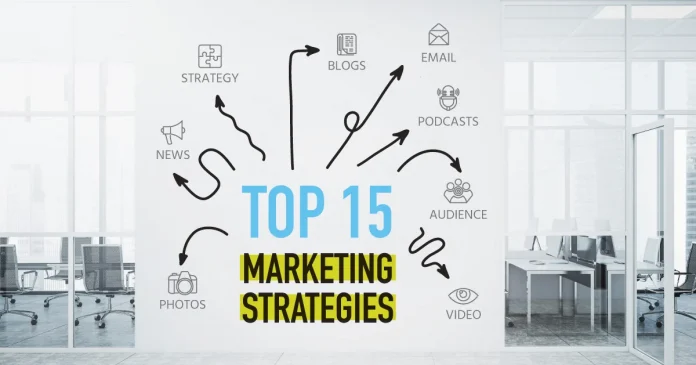Marketing is a constantly evolving industry with new technologies and trends emerging frequently. In such a competitive landscape, marketing businesses need to stay true to best practices to deliver effective, efficient, and ethical marketing strategies. Best practices are tried-and-true methods, techniques, and strategies refined over time through research and experience. Adopting best practices enables you to align marketing efforts with business goals, remain relevant and competitive, and establish a positive reputation. In this article, we’ll discuss the best practices your marketing business needs to implement to succeed.
Clearly Define Your Target Audience
A clear definition of the target audience is a vital best practice for a marketing business. Create campaigns that speak directly to the interests and needs of your ideal customer by understanding their characteristics. Having a clear understanding of your target audience will allow you to create messages that resonate with them, thereby increasing conversions and sales.
Develop a Robust Business Plan
Developing a solid business plan is another essential best practice for a marketing business. A well-crafted business plan can assist in outlining strategies and tactics for reaching your target market, creating a timeline for achieving goals, and providing guidance throughout the life of the business. Include financial projections demonstrating how your marketing efforts will generate long-term revenue. Utilize this guide on how to start a marketing agency to lay a solid foundation before launching your business.
Create a Comprehensive Marketing Plan
Another best practice for a marketing business is to develop a comprehensive marketing plan. A well-defined marketing plan needs to comprise strategies and tactics to reach the target market, establish goals and objectives, develop timelines, and measure progress. Provide direction on how to utilize various communication channels, including social media, email campaigns, and search engine optimization (SEO). Additionally, encompass financial projections that demonstrate how your marketing efforts will generate revenue over time.
Produce Compelling Content
Content is a powerful tool for reaching and engaging customers. To effectively target your audience and establish trust, create content that provides value and demonstrates thought leadership. Incorporate visuals, videos, infographics, blogs, and case studies into content marketing strategies to maximize engagement. Creating compelling content will allow you to stand out in the crowd and increase conversion rates.
Utilize Multiple Marketing Channels
In today’s digital world, customers are exposed to multiple marketing channels. Utilize a combination of organic and paid strategies to maximize reach. Incorporate SEO, social media campaigns, influencer collaborations, email campaigns, and online advertising strategies into your marketing plans. Utilizing different platforms will allow you to diversify your customer base and drive more leads.
Set Measurable Goals
Setting measurable goals is an important best practice that can help you assess the success of marketing efforts. Define success and set specific, achievable goals, such as increasing website traffic by 30 percent or growing email subscribers by 10 percent. For each goal created, determine how it will be measured and monitored. Try using SMART goals to ensure objectives are attainable and specific. This will help you stay on track, as well as evaluate progress over time.
Analyze Performance Data
Data-driven marketing is also a crucial best practice for your business. Conducting regular performance analysis helps you understand how effective your campaigns are and identify areas of improvement. Take advantage of the wealth of data available by using analytics tools to track and measure the success of your marketing activities. This will help you capitalize on opportunities, while understanding which areas need further optimization. For instance, if website traffic is low, look into how traffic can be increased or analyze marketing efforts to determine why customers are not converting.
Evaluate Your Marketing Strategies Regularly
Evaluation is another key best practice for a marketing business. Regularly review your strategies and evaluate their effectiveness to ensure they are meeting the desired outcomes. Adjust your tactics as needed to get the most out of them and reach company goals more efficiently. To gain insights into customers’ preferences, use focus groups or surveys to collect feedback on current strategies. This will help you stay ahead of the competition and remain relevant in the ever-evolving digital landscape.
Continuously Improve Your Marketing Strategy
Finally, strive to refine and improve your marketing strategy. Regularly experiment with new tactics, such as employing artificial intelligence (AI) or launching a loyalty program, to stay abreast of current trends and create a more engaging customer experience. Additionally, attend industry conferences and workshops, read relevant journals and research papers, and follow thought leaders online to learn from their successes. This will help you stay ahead of the competition and deliver more successful campaigns.
By implementing these best practices, you can develop a successful marketing strategy that generates conversions and revenue. With a well-defined plan and regular evaluation of results, your marketing company can deliver growth-driving campaigns while remaining ahead of the competition.



